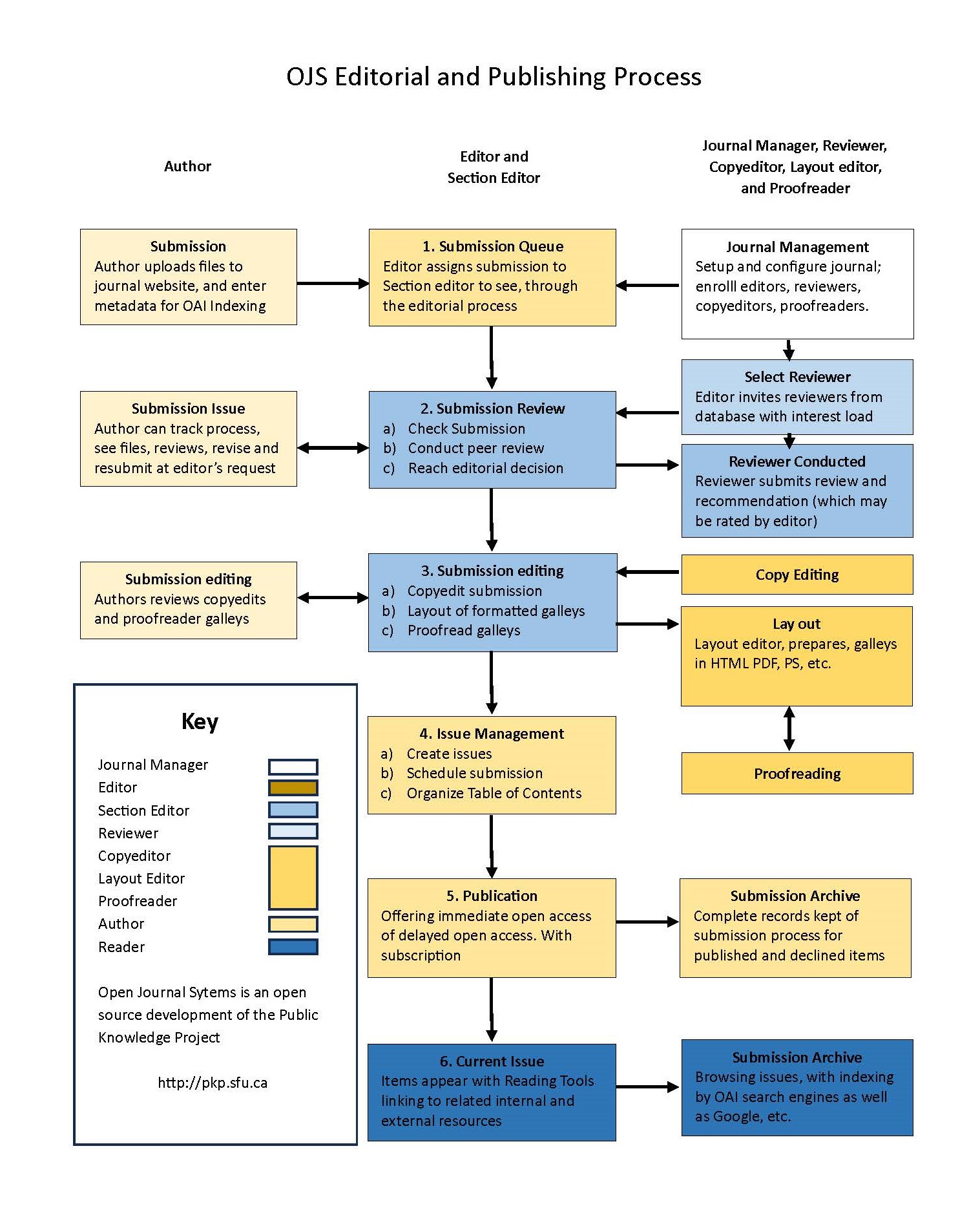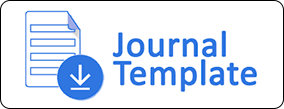Policies of Digdaya
POLICY DOCUMENT
About the Journal
Digdaya Journal is a biannual research journal. Articles from leading scholars in the field of education from around the world are published in Digdaya. The journal addresses various aspects of innovation and technology in education and their impact on different levels and types of education.
Digdaya Journal aims to foster internal and external dialogue among educators and educational researchers worldwide. Its primary goal is to create an environment conducive to enhancing the quality of education through the understanding and application of the latest innovations. The journal seeks to interpret educational theories and practices in a way that highlights the dynamic nature of intellectual and technological advancements in the modern world.
As an academic journal, Digdaya Journal is dedicated to research. It serves as a forum for scholars to write objectively, analytically, and critically on various topics such as teaching methodologies, educational policies, educational technology, curriculum, educational assessment, and educational management.
The journal accepts the following types of submissions:
- Research Articles: Empirical and theoretical research that makes significant contributions to educational knowledge and practice.
- Policy Papers: In-depth analyses of educational policies offering research-based recommendations.
- Policy Briefs: Concise reviews of pressing educational policy issues, with concrete recommendations.
- Book Reviews: Critical evaluations of recent books in the field of education.
With its reputation and commitment to high academic standards, Digdaya Journal provides a platform for significant contributions to the development and understanding of global education.
Focus and Scope
Digdaya Journal is a multidisciplinary academic publication dedicated to advancing knowledge and promoting innovative practices in the field of education. The journal serves as a platform for researchers, educators, policymakers, and practitioners to share their insights, findings, and perspectives on various topics related to education.
Focus Areas:
- Innovative Teaching Methods: Digdaya Journal welcomes research on novel approaches to teaching and learning, including innovative pedagogical techniques, instructional strategies, and educational technologies.
- Educational Technology: The journal publishes articles exploring the integration of technology in education, such as the use of digital tools, online platforms, and immersive technologies to enhance teaching and learning experiences.
- Policy Analysis and Development: Digdaya Journal provides a forum for the discussion of educational policies, reforms, and initiatives at local, national, and international levels. Articles may address policy analysis, evaluation, implementation, and recommendations for effective policy development.
- Curriculum Design and Development: The journal covers research on curriculum design, development, and evaluation across various educational levels and contexts. Topics may include curriculum frameworks, standards-based education, interdisciplinary approaches, and curriculum alignment with societal needs.
- Inclusive Education: Digdaya Journal promotes research on inclusive education practices that address the diverse needs of learners, including those with disabilities, special educational needs, or from marginalized communities. Articles may focus on inclusive curriculum, teaching strategies, support systems, and policy implications.
- Teacher Education and Professional Development: The journal publishes studies on teacher preparation, professional development, and continuing education programs. Topics may include teacher training models, pedagogical content knowledge, mentoring, and teacher identity.
Scope:
Digdaya Journal welcomes original research articles, literature reviews, case studies, policy analyses, and theoretical perspectives that contribute to understanding and improving education systems, practices, and outcomes. The journal encourages interdisciplinary and cross-sectoral collaborations to address complex educational challenges and promote innovative solutions.
By providing a platform for scholarly exchange and dialogue, Digdaya Journal aims to facilitate the dissemination of cutting-edge research and foster collaboration among researchers, educators, policymakers, and practitioners to advance the field of education and contribute to positive societal change.
Peer Review Policy
The Peer Review Process at Digdaya Journal ensures that each submitted article undergoes rigorous selection and evaluation by experts in the field. Here are the steps involved:
- Article Submission: Authors submit their articles through our online platform.
- Preliminary Evaluation: Upon submission, articles are initially assessed by the journal editors to ensure alignment with the journal's focus and writing criteria.
- Peer Review: The articles are then sent to reviewers who are experts in the relevant field. Reviewers conduct thorough evaluations of the articles, assessing the quality of methodology, originality of findings, and significance of contributions.
- Decision Making: Based on the reviews from the reviewers, the editors make decisions on whether the article should be accepted, revised, or rejected. These decisions are made considering the quality and relevance of the article.
- Revision and Editing: If necessary, authors are requested to revise their articles based on the feedback from the reviewers. The articles are then edited to ensure clarity, consistency, and compliance with journal standards.
- Publication: Once the articles are revised and approved by the editors, they are prepared for online publication.
This Peer Review Process ensures that every article published by Digdaya Journal meets high standards and contributes significantly to the knowledge in the field of education.
Internal Review
Every manuscript undergoes an internal review conducted by a relevant editorial board or team member to ensure proper formatting and adherence to publication ethics. The reviewer also assesses whether the research design and analysis follow basic research protocols and contribute significantly to the existing body of literature. At Digdaya, a thorough desk review process is implemented, wherein articles are subjected to a desk rejection/acceptance system before being sent for external review. Papers that do not meet the minimum requirements are not forwarded for external evaluation.
External Review
Digdaya utilizes a double-blind review process once a paper has passed the internal review stage. Authors are instructed to refrain from including personal information within the paper's content. They are also advised against uploading their papers on any website to maintain anonymity for potential reviewers. Similarly, reviewers are expected to decline if they become aware of the authors' identities during the peer review process.
External reviewers commonly provide feedback and suggestions on aspects such as originality, presentation quality, research design, data/results/conclusions, the relevance of the study, and its significance to the research community. In the event that major flaws are identified during the external review, which cannot be adequately addressed through significant revisions, the reviewers may recommend rejecting the paper.
Criteria for Selection of Reviewers
Reviewers are carefully selected based on the following criteria:
- They must hold a minimum of a Master's degree or advanced professional qualifications, along with extensive professional/academic experience.
- They should be recognized as renowned experts in their respective fields, as evidenced by their publications in reputable academic or professional research journals.
- They should not have any affiliation with the institution of the authors.
- They should possess a strong understanding of data analysis.
Resources Available to Reviewers
Reviewers of Digdaya are esteemed academic and professional researchers who have access to diverse research databases and the latest materials relevant to their field. If reviewers require additional resources to complete their review, they will be provided with the necessary materials.
Step in Peer Review Process
The peer review process can be broadly described as follows:
| No. | Step of Review Process | Estimated Time |
|---|---|---|
| 1 | Submission of paper | - |
| 2 | First internal review * | 2-3 weeks |
| 3 | External review | 3-4 weeks |
| 4 | Review reports communicated to authors for revisions ** | 1 week |
| 5 | Submission of revised paper | 4-7 weeks |
| 6 | Second internal review for incorporating suggestions *** | 1-3 weeks |
| 7 | Acceptance upon successful submission of revised version | 1 week |
*The paper is returned to the authors if it does not meet the basic criteria.
**The paper is returned to the authors if external reviewers identify significant flaws that cannot be addressed through major revisions.
***Authors are requested to make further revisions if the editors find that the reviewers' suggestions have not been adequately incorporated.
Note: Authors are kindly requested to carefully revise the paper in accordance with the suggestions provided by the reviewers to avoid any unnecessary delays in the review process.
Resubmission of paper (after peer review)
Nearly every published paper undergoes at least one round of revision. Authors should perceive a revision request as positive news and an opportunity to learn and enhance the quality of their research paper. They are advised to carefully revise the paper in line with the suggestions provided by the reviewers to prevent unnecessary disruptions in the review process. Typically, when the review report is provided, each point raised in the review must be addressed in the revised version of the paper or an appropriate response is expected from the author(s). Authors should exercise utmost care in ensuring accuracy and completeness in accordance with the reviewers' suggestions, in order to avoid further review and delays (additional revisions may be recommended if editors find that the reviewers' suggestions have not been satisfactorily incorporated).
Considering other academic and professional commitments, authors may request additional time if they believe that the revision requires more effort and time to improve the quality of the paper.
Publication Timelines
| Issue No. | Biannual | Published Month |
|---|---|---|
| 1 | November- April | April |
| 2 | May - October | October |
Editorial and Publishing Process
Appeal/Complaint Process
The Editorial Board of Digdaya is committed to providing quality editorial services to its contributors and believes in building and maintaining trust and respect for all contributors, readers, and practitioners. Digdaya aims to improve its services by responding to appeals and rectifying any mistakes related to: a) Objections to publications causing harm to any party. b) Infringement of ethical boundaries. c) Rejection of research papers.
Authors/readers can submit their appeals directly to the Editor digdayajurnal@gmail.com. The appeal must provide detailed justification (harm, ethical issues, or response to editor/reviewer comments). The Editor will independently address the matter and forward it to the appropriate member of the Digdaya Editorial Board. After reviewing all the submitted complaints/justifications, the board member can recommend accepting the appeal, further review, or upholding the original decision (if any).
English Language Editing
It is the primary responsibility of authors to ensure that their research papers are free from spelling, typing, grammar, and syntax errors. Authors whose native language is not English should have their research papers edited by an English language expert.
Originality and Plagiarism Policy
Digdaya strictly adheres to the guidelines and internal policies set by the journal to maintain academic integrity. To ensure the authenticity and academic integrity of all research papers submitted to Digdaya, they undergo a thorough plagiarism check using Turnitin. If the similarity index exceeds 22%, the paper is promptly returned to the authors.
In the event that plagiarism or other unethical practices are discovered after publication, the editorial board has the authority to take corrective measures or retract the paper, in accordance with the policies and procedures established by the journal. It is the individual and collective responsibility of all authors to ensure the authenticity and integrity of their content.
Furthermore, it is important to note that self-plagiarism, which involves directly or substantially reproducing one's own previously published work or work under consideration elsewhere, resulting in a lack of originality in the current submission, is strictly prohibited and not acceptable in any form.
Article Processing Charges/ Publication Fees
The journal does not require authors to pay an article submission fee. There are no charges for Article Processing (APC) or Article Publication (APF) to cover the administrative and management costs of peer review, professional production of articles in PDF and other formats, and the dissemination of published papers through different channels, among other publishing activities. All expenses are covered by the publisher. Digdaya does not impose any fees for submitting or publishing an article.
Submission Guidelines: Submission Preparation Checklist
As a part of the submission process, authors are required to confirm that their submission complies with the following guidelines. Submissions that do not adhere to these guidelines may be returned to the authors.
- The submission has not been previously published and is not under consideration by another journal (or an explanation has been provided in the Comments to the Editor section).
- Where available, URLs for the references have been provided.
- The text is single-spaced, uses a 12-point font, utilizes italics instead of underlining (except for URL addresses), and all illustrations, figures, and tables are inserted within the text at the appropriate positions, rather than at the end.
- The text follows the stylistic and bibliographic requirements outlined in the Author Guidelines.
Copyright Notice
Authors still hold the copyright and grant the journal the right to publish their work first. The work is licensed under Creative Commons Attribution-NonCommercial-ShareAlike 4.0 International, meaning others can share it as long as they acknowledge the author and initial publication in this journal.
Authors can make separate agreements for non-exclusive distribution of the journal's published version of their work (like putting it in an institutional repository or publishing it in a book), while acknowledging its first publication here.
Authors are allowed and encouraged to share their work online (on institutional repositories or their websites) before and during the submission process. This can lead to productive exchanges and more citations of their work.
Correction and Retraction Policy
Author Correction: An Author Correction may be published to rectify significant errors made by the author(s) that impact the scientific integrity of the published article, the publication record, or the reputation of the authors or the journal.
Publisher Correction: A Publisher Correction may be published to rectify significant errors made by the journal that impact the scientific integrity of the published article, the publication record, or the reputation of the authors or the journal.
Retraction: An article may be retracted when the integrity of the published work is substantially compromised due to errors in the conduct, analysis, and/or reporting of the study. Violations of publication or research ethics may also lead to the retraction of a study. The original article is marked as retracted, but a PDF version remains accessible to readers, and the retraction statement is linked to the original published paper. Retraction statements typically include a statement of agreement or disagreement from the authors. The original article remains unchanged except for the addition of a watermark on each page indicating that it is "retracted." A retraction noted titled "Retraction: [article title]" signed by the authors and/or the editor is published in a subsequent issue of the journal and listed in the table of contents.
Conflict of Interest Declaration Policy
A conflict of interest may arise from relationships, loyalties, or hostilities towards specific groups, organizations, or interests that may unduly influence one's judgments or actions. This issue becomes particularly sensitive when such interests are private and/or may result in personal gain.
Therefore, Digdaya requires a formal declaration of any conflicting interests to be included in the published article.
Articles will be evaluated fairly and will not necessarily be rejected based on the declaration of competing interests.
Examples of conflicts of interest may include, but are not limited to:
- Receiving consulting fees.
- Receiving research funding.
- Being employed by a related company.
- Holding stocks or shares in a company that may be affected by the publication of your paper.
- Receiving funds for attending related symposia or talks.
If there are other interests that reasonable readers may perceive to have influenced your research, you may also choose to declare them.
Please note that it is not expected to disclose detailed financial arrangements when declaring a competing interest.
Author Agreement Statement
All authors are required to provide a signed statement declaring the originality of the article. A sample text is provided below:
We, the undersigned, declare that this manuscript is original, has not been published before, and is not currently being considered for publication elsewhere. We confirm that the manuscript has been read and approved by all named authors, and there are no other individuals who satisfy the criteria for authorship but are not listed. Furthermore, we confirm that the order of authors listed in the manuscript has been approved by all of us. We understand that the corresponding author is the sole contact for the editorial process. He/she is responsible for communicating with the other authors regarding progress, submission of revisions, and final approval of proofs.
Signed by all authors as follows:
Name : ____________________________
Signature : _________________________
Author Consent Statement Each author is required to submit a statement along with their article, expressing their agreement with all the journal's policies regarding the publication of their article.
Authorship Policy
- Authorship Credit
Authorship credits will be given only to those who have made a substantial contribution to the construction of the article. The corresponding author of the article is responsible for giving credits to co-authors who have significantly contributed to the work. Additionally, the corresponding author should ensure that all co-authors have approved the final submission and the version of the article ready for publication. Others who have participated in certain substantive aspects of the research should be acknowledged for their contribution in an "Acknowledgement" section.
- Changes in Authorship
The authors have the full responsibility of providing the names of the authors when submitting the article to the journal. Once the article is accepted for publication, any changes to the authors' names, such as addition, deletion, or rearrangement, will not be allowed unless approved by the journal's editor. To request such a change, the corresponding author must provide the journal's editor with: (a) a reason for the change in the author list, and (b) written confirmation (via email or letter) from all authors stating their agreement with the addition, removal, or rearrangement, including confirmation from the author being added or removed. The editor may only consider the addition, deletion, or rearrangement of authors after the manuscript has been accepted under exceptional circumstances and with valid reasons. However, during the editor's consideration of the request, the processing of the manuscript for publication will be temporarily suspended. If the manuscript has already been published in an online issue, the editor may not entertain any requests for changes.
- Order of Authors
It the responsibility of the authors to have a mutual agreement on the order of the authors before submitting the article to the journal. Any such disagreements must be ruled out before the submission.
- Guest Authorship
The "guest" author makes no significant contributions to the study, hence, do not qualify for authorship. The journal does not allow the appearance of guest authorship on the articles.
- Anonymous Authorship
Given that transparency and public accountability are essential in authorship, the use of pseudonyms or anonymous publication of scientific reports is not appropriate. However, in exceptionally rare cases where an author can demonstrate a credible risk of serious hardship by attaching their name to the document (such as threats to personal safety or loss of employment), a journal editor may consider publishing the content anonymously.
- Acknowledgment
In the Acknowledgments section, authors may wish to include the names and contributions of those whose involvement in a study did not qualify them for authorship (because of the journal policy) but have contributed to the article in some way.
- Dulicate Submission
Articles that have been previously published elsewhere or are currently under consideration for publication elsewhere will be considered as "duplicated" material. If the author(s) have used their own previously published work or work under review, they are required to cite the previous work and explain how their submitted manuscript offers novel contributions and adds value in a different way from the previous work.
- Citation Manipulation
Manuscripts that are submitted and found to contain citations with the purpose of artificially inflating the number of citations to a specific author's work or articles published in a particular journal will be considered as containing "citation manipulation."
Policy and principles of research data
Facilitating the accessibility of data to other researchers contributes to the advancement of knowledge and enhances the efficiency of the research process. The nature of data may vary across different fields, but in general, it encompasses observations, experiments, and samples that validate previous findings and are not published as journal papers. Research data can take various forms, such as processed data, raw data, clean data, software, estimation techniques, methods, protocols, and research materials. Digdaya plays a crucial role in supporting researchers by promoting data availability. It strongly encourages researchers to share the data they have used in their research, enabling other researchers to benefit from and utilize it in their own studies.
Principles of research data
Digdaya adheres to the following principles:
- Promoting the sharing of research data among researchers when appropriate.
- Requesting researchers to make their data available for others to benefit from and potentially use in their own research.
- Facilitating compliance with data management requirements, including supporting data availability statements to enhance transparency.
- Recognizing that research data can vary across different fields of study, and considering specific permissions and requirements as needed.
- Ensuring equal opportunities for all researchers to effectively reuse research data.
Rules for Details of Contribution of each researcher in the research paper
Rules for specifying the contribution of each researcher in the research paper are as follows:
- Clearly state the specific contributions of each author in detail.
- Specify the tasks or sections of the paper that each author has worked on.
- For example, if there are two authors, indicate the areas where each author has contributed, such as writing the introduction and literature review, or conducting analysis, estimation, writing results, interpretation, and conclusion.
- Provide a comprehensive and accurate description of each author's role to ensure transparency and proper acknowledgment of their contributions.
- Avoid ambiguous or general statements and provide specific information regarding each author's involvement in the research and the preparation of the paper.
|
Chief in editor
Mulyawan |







